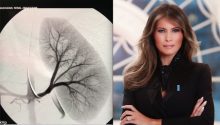One of the Northeast’s major teaching hospitals is an international leader in virtually every area of medicine. It has been the site of pioneering breakthroughs that have improved lives and advanced healthcare around the world. This hospital includes more than 100 outpatient practices with more than 1,000 physicians serving patients from New England, across the United States, and from more than 100 countries around the world.
© Copyright Wainscot Media. All Rights Reserved.
Subscribe Now




